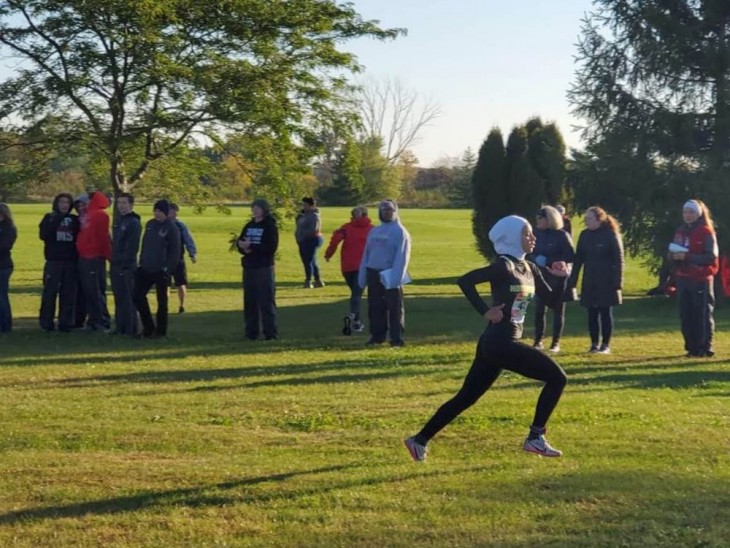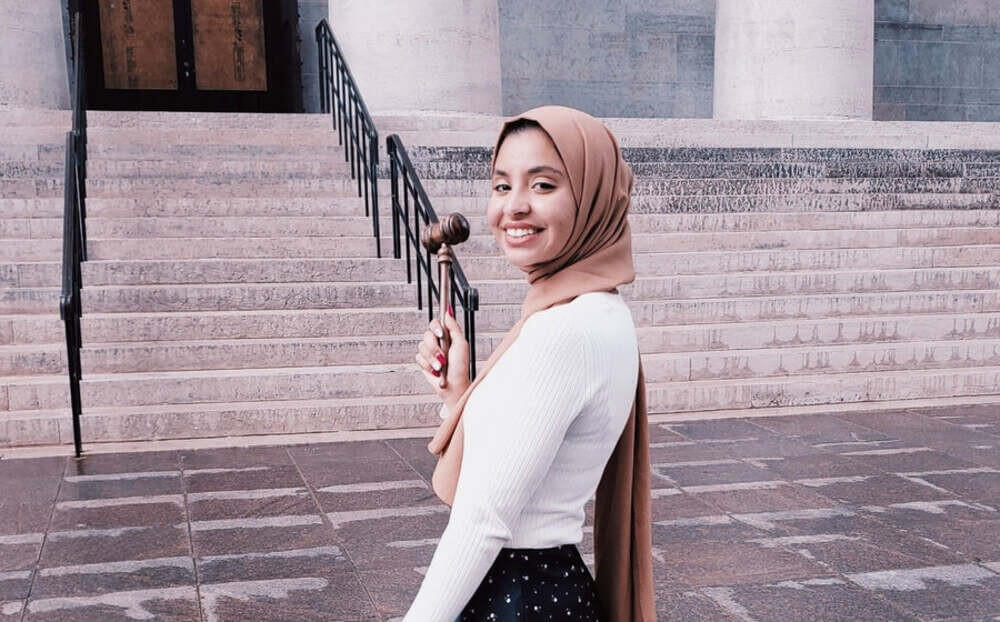Gender Equality
06.06.2022
Disqualified for running in a hijab, Noor Alexandria Abukaram turned pain into action

-
Members of the discussion:
11 -
Last reply:
more than a month ago
Since then, the 18-year-old has used her platform to raise awareness about discrimination in sports through her Let Noor Run campaign and helped successfully lead the charge to legislative changes that protect freedom of religious expression for athletes in Ohio.
In her own words, Abukaram describes how she's empowered herself as a hijabi runner and worked toward making sports more inclusive.
I would never let my hijab be why I couldn't do something, including being an athlete.
The day of the race was no different. I was running varsity at the district invitational in Oct. 2019. After the race, I felt like I was on top of the world. I had just run my best time of 22 minutes and 22 seconds in the 5K. Our team found out we made it to regionals. My Sylvania Northview High School teammates and I were celebrating, making plans of what we would do after the race. After checking individual placings, I didn't see my name on the list. I thought it was a typo. My emotions shifted when they told me that I was disqualified because of my hijab.
I couldn't process what was going on. I didn't speak to my teammates when they told me. I was the only person in this race that didn't know that I was disqualified. I was humiliated. I needed to escape. So, I went to the bathroom, as I think any girl does when they're going to cry.
I wasn't sure how I was supposed to feel. Was I supposed to feel angry? Or sad? But the biggest emotion, again, was humiliation.
When I started telling my story and hearing from people around the world who faced similar experiences, I realized that my feelings were real. It wasn't just in my head or irrational. It was all valid.
It took time to process before turning my pain into action. My fire to make change didn't come until after cross country was over because my disqualification defined the season. That was still on everyone's mind.
When I met with Ohio Senator Theresa Gavarone (R-Bowling Green) in 2020 and shared my story, I realized its importance. Senator Gavarone immediately got to work. It was all worth it so that change-makers could hear my story.
I realized my story could change the lives of countless other athletes in Ohio."

 Hijabi women were Noor Alexandria Abukaram's sheroes growing up. Now she's an inspiration for women athletes of all ages.
Hijabi women were Noor Alexandria Abukaram's sheroes growing up. Now she's an inspiration for women athletes of all ages."During my freshman year of college at The Ohio State University in 2021, I continued to work a lot. There was a big push to pass my bill, which protects religious expression in athletics, into law and it happened. (Senate Bill 288 prohibits Ohio schools and interscholastic organizations from adopting rules banning the wearing of religious apparel during athletic events.)
It took a few years to get it signed into law. My first time testifying in support of the bill at the Ohio Statehouse, I was very emotional. I remember getting off the stand and I was like, "Why am I so emotional?" I'd told this story a hundred other times. I was quivering — like, "I'm about to burst into tears in front of these Senators?" I was so emotional because, this is what I've been waiting for. Being up there, it was both nerve-racking and empowering at the same time because I felt like my voice really mattered in that moment.
I remember when it passed The Ohio House of Representatives. The way the Statehouse looks — it's like a big screen with all the representatives names in orange. Their names will turn green or red if they vote yes or no. It was a unanimous yes vote, so you just see all the orange becoming these green letters.
Seeing the green letters felt like a breath of fresh air. It was empowering. Days later the governor signed it, which was about two years after the first time I went to the Statehouse to drop the bill. It felt like I was doing what I was meant to do, and everything fell into place when it became law. That's almost the justice that I've been waiting for.
When it turned into law, I felt like my work and story became truly impactful for Muslim athletes in Ohio. Athletes that wants to express their religious beliefs in Ohio, they can do so without any hindrance. It's because of my story and me sharing it.
Before I started to tell my story, it was always such a question if it was worth it. Today, I know that it was.
Now, I am a rising sophomore at The Ohio State University, and much has changed. Going into college, I was like, "I'm going to really try to settle down." I'm on an academic scholarship, so it was important for me to focus on school. But that's not my speed. It hasn't been since 2019.
Although I no longer run competitively, I have focused on inclusivity in sports through my Let Noor Run campaign. We recently raised money for sports hijabs to be provided to students in Toledo, Ohio. Families shouldn't be hindered by having to buy sports hijabs to ensure their daughters stay in the game. It's not out of this world that there's a hijabi athlete, and it should become a common reality in all sports. It was one of the most powerful things that we could have done.
I started wearing my hijab in 2015 when I was 12 years old. My role models, these strong women like my mom, always wore hijabs. Wearing the hijab is a constant, everyday reminder to be the best version of myself. And because of that, during the pandemic, I visited classrooms virtually and met little girls inspired to play sports, engage in civic participation or even wear the hijab. Them relating and being inspired by my story is so special.
If I could go back and tell my 16-year-old self anything, it would be to accept the change you can make in the world.
As Muslim women become more prominent in sports, sports associations will stop trying to regulate them. They'll allow women to express themselves in sports just as you would anyone else. Just as someone might have an arm sleeve of tattoos, Muslim women wearing a hijab should be no different. Same with someone wearing cross jewelry. A hijab is no different.
When Muslim women decide to wear the hijab, it's not an easy feat. It's not easy to wear a hijab in this country. It takes a lot of strength. If you're going to make a Muslim woman choose between hijab and sports, they're going to fight for their hijab because it's something they chose to do. It's something they're committed to wearing. And I am committed to making sure they never have to choose."
Discussion
More on the topic
